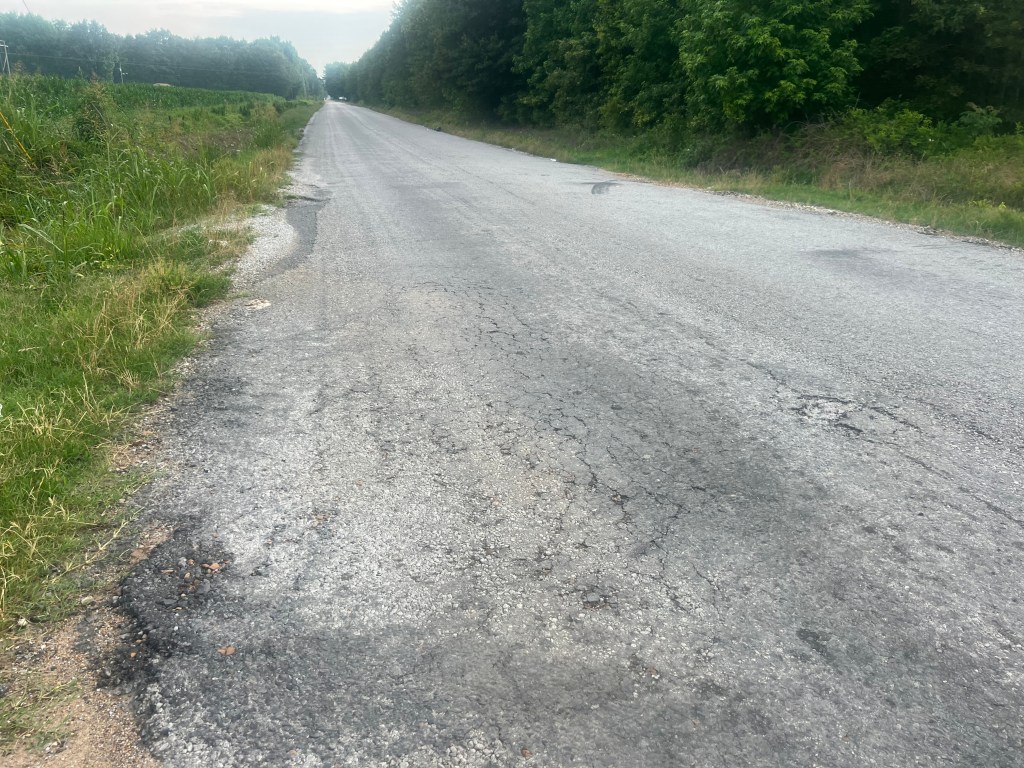Supervisors pivot on county roads – Plan to reduce time, money spent on patching potholes
Published 10:59 am Thursday, June 12, 2025
In a pivot that marks a decidedly different approach to the upkeep of county roads, the Panola Board of Supervisors this month embraced the theory of “a good gravel road is better than a bad paved one.”
To that end, the supervisors are contemplating selling at least one of the county’s two large patch trucks and investing (buying or leasing) in another grinding machine with the goal of speeding up the repair and overlaying of the worst roads instead of using resources to constantly fill potholes.
“We definitely need to move our focus in a different direction,” said supervisor Chad Weaver. “There is no way with the resources we have and as hard as we are fighting to make this work. You can’t work eight days a week and catch up.”
Board president Cole Flint said supervisors spent considerable time with outgoing road manager Bruce Cook and new manager Eric McCain to reach the decision. The two patch trucks – nearly $275,000 each when purchased new in 2019 – are rarely working at the same time because of breakdowns (one is currently in the shop) and could bring enough in resale to purchase other less expensive road equipment.
Flint said patch trucks could be replaced with much less expensive patch trailers that can be pulled with trucks the county already owns, and leave the Road Department with an easy option to fill potholes that can’t wait until that road is ground and packed.
The supervisors determined that sharply reducing the resources used to fill potholes with hot mix (which often lasts just a few days) will free up the Road Department to prepare more miles of roads each year for paving, and also give road beds time to “set up” before being overlaid with asphalt.
It’s a road maintenance technique used by the City of Batesville and neighboring municipalities and counties. Lafayette and Pontotoc both have more miles of gravel road than Panola (by percentage) but those are maintained and prepared for paving on a set schedule.
“We need to grind up some of these roads that are crumbling all to pieces because they’ve had twenty years with no maintenance and they have deteriorated so bad we have to change,” Weaver said.
“We are spending so much time and money and man hours trying to fill potholes that some places we have more filled in spots than we have flat pavement. Then we have twenty-three days of rain in the month of May. I don’t care who you are, you can’t fight that battle,” Weaver said.
The board did some measure of good news concerning three road projects this month. Tocowa Road overlay has passed the design process for State Aid roads and is in a final state before work can begin – possibly late this year, but more likely early next year.
Good Hope Road, which had some repairs and leveling work in the past year, will get a fresh overlay from end to end. Originally a State Aid road project, the supervisors chose to remove it from that list and fund the overlay in house so the project would not be delayed on the high traffic road.
That work may begin as early as this month.
Macedonia Road, far from being finished, has at least been made passable, although traffic is hampered by potholes and gravel. That project will get the supervisors’ full attention until finished, although persistent rains have kept contractors off site more days than not this spring.






